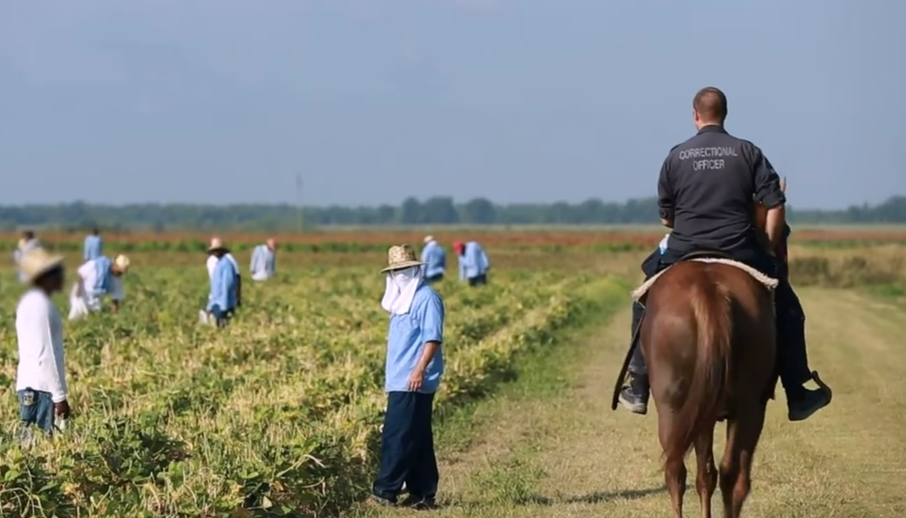Prison Labor - ACLU Report Examines Exploitation of Incarcerated Workers
Report finds that labor conditions in many U.S. prisons violate fundamental human rights to life and dignity

In recent years, prison labor has expanded in scope of industry and reach into those industries. Incarcerated workers, within in-house operations or through convict-leasing partnerships with for-profit businesses, have been involved with mining, agriculture, and all manner of manufacturing from making military weapons to sewing garments for Victoria's Secret. Prison programs also extend into the services sector; some incarcerated workers staff call centers.
With this expansion of prison labor into many mainstream sectors of the U.S. economy, you could reasonably expect some degree of compliance with modern labor standards. However, despite the hard-won protections secured by the labor movement over the past 100 years, incarcerated workers do not enjoy most of these protections.
Incarcerated workers are not excluded from the definition of employee in workers’ protection statutes like the Fair Labor Standards Act (FLSA) or the National Labor Relations Act (NLRA). However, in the cases where incarcerated workers have sued their prison employers to enforce minimum-wage laws or the FLSA, courts have ruled that the relationship between the penitentiary and the inmate worker is not primarily economic. As a result, the worker is not protected under the statutes. By judging the relationship between prisons and incarcerated workers to be of a primarily social or penological nature, the courts have placed wage and working-condition protections out of reach for incarcerated workers.
Short version; incarcerated persons lack a constitutional right to be free of forced servitude. The carveout to the 13th amendment of the U.S. constitution banning slavery - excepting those convicted of crimes - remains.
The ACLU, along with the Global Human Rights Clinic of the University of Chicago Law School, completed a comprehensive report that examines the use of prison labor throughout the U.S. and highlights how incarcerated workers’ labor helps maintain prisons and provides vital public services.
Some of the reports findings:
- 65% of incarcerated people report working behind bars, or roughly 800,000 workers incarcerated in prisons.
- 76% report facing punishment, such as solitary confinement, denial of sentence reductions, or loss of family visitation, if they decline to work.
- 64% of incarcerated workers surveyed reported worrying about their safety while working.
- 70% percent say they received no formal job training.
- 70% percent report not being able to afford basic necessities like soap and phone calls with prison labor wages.
Additionally, most states pay incarcerated workers pennies per hour for their work. Seven states (Alabama, Arkansas, Florida, Georgia, Mississippi, South Carolina, and Texas) pay nothing for the vast majority of prison work. Other states pay on average between 15 and 52 cents per hour for non-industry jobs. Prison laborers often see up to 80% of their paycheck withheld for taxes, “room and board” expenses, and court costs.
Yet, the report also notes that incarcerated workers produce at least $2 billion in goods and $9 billion worth of prison maintenance services annually. This number is not closely tracked and is likely much higher.
Released in June 2022, you can download the report via PDF here from the ACLU.










